Ariel Kaluzhny
CyberInfrastructure Intern
Project: Implementation, visualization, and output analysis of time series algorithms of NEON tower sensors
Mentors:
François Pradeau, Jim Arnow
Liz Goehring
Dee Dahanayake
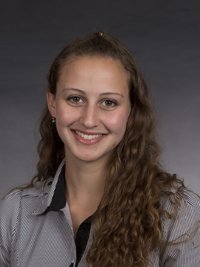
Ariel Kaluzhny, CyberInfrastructure Intern
About Ariel
Ariel Kaluzhny is a junior at Wesleyan University in Middletown, Connecticut. She is majoring in computer science and economics.
Read Ariel's blog post, written with fellow intern Madeleine Ball, So what do YOU do? An explanation of NEON's Airborne Observation Platform and Cyber Infrastructure through new eyes.
Tags:
Rose Petersky
Aquatic Ecology Intern
Mentors:
Ryan Utz, Michael Fitzgerald
Ryan Utz
Dustin Whittemore
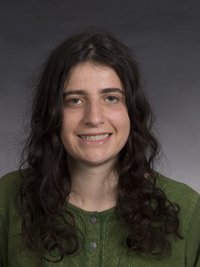
Rose Petersky, Aquatic Ecology Intern
About Rose
Rose is a Senior at SUNY College of Environmental Science and Forestry in Syracuse, NY. She is majoring in Environmental Science. Rose grew up in Washington state.
For a taste of what an aquatics intern at NEON does for the summer, read Rose's blog post - From the University to the Field.
Tags:
Kevin Sacca
Terrestrial Ecology, Instrumentation Intern
Project: Determining snow depth using an automated image processing algorithm
Mentors:
Michael SanClements, Sarah Elmendorf
Michael SanClements, Sarah Elmendorf
Matt Ventimiglia
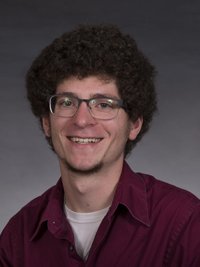
Kevin Sacca, Terrestrial Ecology, Instrumentation Intern
About Kevin
Kevin is a Junior at Rochester Institute of Technology in Rochester, NY. He's a NY native. Kevin is studying Imaging Science. Read his blog post - What's an imaging science student doing at NEON? (see Related Content below).
Tags:
Adrienne Rodriguez
Aquatic Ecology Intern
Project: Revealing lake ecosystem function from bathymetric, hydrologic, and land use modeling in ArcGIS
Adrienne's Mentors: Charlotte Roehm, Melissa Slater, Jennifer Everhart
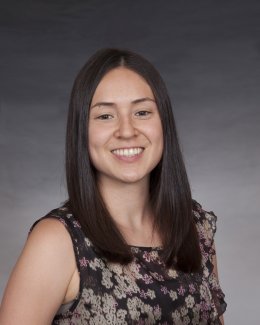
About Adrienne
Adrienne Rodriguez graduated in 2014 from North Carolina State University, with a major in environmental technology and management, and a certificate in GIS. with a passion for the environment and just about anything concerning water, Adrienne spent her summer internship at NEON learning about limnology and developing her GIS skills. For her, “NEON has been really great, and has helped me grow all-around as a person and a professional.”
Q&A
Not really. But now that I have looked at NEON I realize that in order to really understand the environment you need to know the components of ecology and how everything connects.
I always liked understanding how things work with cause and effect relationships. When I was young, my father helped me realize that appreciating the environment is really important because it provides everything we need to live. So I was always a nature-lover, but it wasn’t until college that I realized I actually wanted to study science and the environment.
Yes, but probably not as a research scientist. I am more interested in science technology and environmental technology. Looking at ways to help build our understanding of the world.
It refined my idea of what I want to do career-wise in the sciences. Plus, it bettered me as a person, both on a personal and professional level. I really grew professionally because the environment here at NEON is one of mutual respect and ongoing improvement.
This might sound cheesy, but the relationships I have built with the other interns have been one of the best parts for me. We are all here together learning from each other. Also, the relationships with my mentors have been really beneficial.
I learned something that was really new to me this summer. Integrating the language of limnology into my overall understanding of environmental science has definitely been a challenge. Just learning to be comfortable with talking about a new topic that I a not quite a master of yet.
Yeah, definitely. What other organization is studying what NEON does on this kind of scale? The fact that NEON is trying to better our society and world is a really cool purpose. For people who are interested in the environment or in ecology, I would definitely encourage you to apply.
Tags:
Abigail Oakes
Communications Intern
Project: Inclusive Environments: Developing outreach for Latino communities
Abby's Mentors: Jennifer Walton, Sandra Chung, Liz Goehring, Claire Lunch
Abigail Oakes, Communications Intern
About Abby
Abby Oakes was a sophomore at New College of Florida, studying the natural sciences, when she joined NEON's internship program. She had never studied ecology before, but came to NEON with interests in both science and writing. Spending the summer learning about the interdisciplinary work of NEON and how ecology relates to the general public, Abby says NEON is “a really neat place where you can learn about a lot of different things all at once.” Check out Abby's blog post A field day for interns (see Related Content below).
Note: After her NEON internship, Abby was awarded a Udall Scholarship (one of 50 nationwide) for college sophomores and juniors committed to careers related to the environment. Congrats, Abby!
Q&A
My friend sent me a link to the NEON website because they had met someone who worked there. They said they thought I might be interested in NEON’s communications program, and they were right!
I can remember being a really little kid and enjoying science. I loved space and nature, and always enjoyed science classes in school. I got to college and honestly didn’t know what I wanted to do, so I just started taking science classes because I remembered liking them as a kid.
If I do end up in STEM, it will be on the edges. I don’t see myself in academia as a researcher or out in the field collecting data. I like working with people, which is why science writing has made sense to me. I have been exposed to a ton of different STEM careers I didn’t really even know existed until now. It has opened my eyes to how many different things you can do and be considered a part of STEM.
The best part for me was all of the professional experience I gained. I had never really worked in an office before, so even just that was valuable. I also met a lot of interesting people who helped me think about my future.
The hardest part for me was learning something completely new. I came to NEON with an interest in educational outreach, but really no experience. I did a lot of reading and had a kind of crash-course at first.
I would tell future NEON interns that networking is one of the most valuable things you can do here. Everyone at NEON is really interesting and it’s definitely worth picking their brains. Also, they sometimes buy you lunch!
Tags:
William Ennis
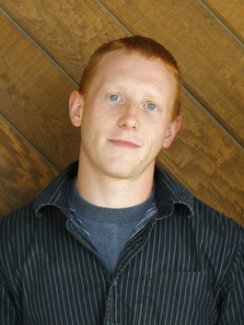
William Ennis, 2013 Engineering Intern
Engineering Intern (2013)
Project: Design and prototype of STREON aquatic organism exclosure
Will's Mentors: Susan Tower, Andrew Sparks and Ryan Utz
About Will
Will Ennis was a junior at the University of Alabama (Roll Tide!), studying mechanical engineering, when he interned with NEON. Will has been interested in engineering since he entered undergraduate school. He spent his summer internship designing tools and equipment for various NEON projects. He said that the best part of his internship at NEON was, “seeing my designs go from a computer screen out to the field. Seeing that something actually works in real life is the ultimate engineering test.”
Q&A
No. What I study and what I am interested in is engineering. Though, I have learned about how ecology and engineering have unique challenges, especially when they interact. Most engineers are designing things that will be profitable. At NEON, we focus more on products that are friendly to the environment and simple for scientists to utilize since NEON is not trying to make money.
Yes, I like engineering and I think I’ll continue with it.
Not really, it pretty much stayed the same. I wanted to pursue engineering before NEON, and now I still do. It just kind of reinforced how I felt before.
The best part is seeing my designs go into the field. I love seeing things that I built being used. That is the ultimate test of a design – does it actually work in real life?
For me, it was learning some of the 3-D design programs. At the University of Alabama, there isn’t a huge emphasis on learning how to use these programs. But I learned at NEON that this is actually one of the main parts of a career in engineering.
It may seem simple, but I would familiarize yourself with the bus system and other ways of transportation in Boulder before you get here. Most of the interns flew here and we didn’t have cars, so knowing how to get around before you get here is important. That way, you won’t spend the first three days lost, like I did.